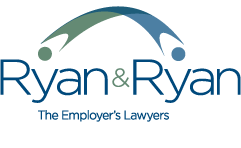Grammar, punctuation and language are critically important to the proper drafting of all work-related documents, including employment agreements; collective bargaining agreements; workplace policies, procedures and handbooks; settlement agreements; and separation agreements. While we all remember grammar lessons from middle school and beyond, it is important to put those lessons to good use when drafting important documents. The First Circuit Court of Appeals recently issued a stark reminder of the importance of grammar – and the consequences of ignoring grammar rules. In this case, the failure to recognize the important use of punctuation could cost an employer an estimated $10 million for unpaid wages.
Employees sued their employer claiming that they were due overtime wages, while the employer responded that the relevant Maine statute exempted them from the payment of overtime. The statute at issue exempts from overtime:
the canning, processing, preserving, freezing, drying, marketing, storing, packing for shipment or distribution of:
(1) Agricultural produce;
(2) Meat and fish products; and
(3) Perishable foods.
The exact portion of the statute in question involved the phrase “packing for shipment or distribution of” the enumerated products, and the grammar rule in question is called the Oxford comma (because it derived from the Oxford University Press style guide) or the serial comma. The employees argued that what was exempted was the packing ‘for shipment or distribution’ (and that the comma was required to resolve ambiguity) while the employer argued that what was exempted was the ‘packing for shipment’ or the ‘distribution of’ the enumerated goods (and that the comma was unnecessary because there was no ambiguity). The employees also argued that all other items in the series were verbs ending in ‘ing’ and that the term ‘distribution’ did not fit within the series that was set-off with commas (adding, as a result, to the ambiguity of the statute).
The Circuit Court analyzed two grammar rules and their interpretation on the use of the Oxford comma, both of which can be considered correct depending upon how you were taught or the rules that you follow. The following style guides call for the use of the Oxford comma: The MLA Style Manual; The Chicago Manual of Style; and The US Government Printing Office Style Guide, among others. The following style guides do not call for the use of the Oxford comma, except to reduce ambiguity: The Associated Press Style Guide; The New York Times stylebook; and The Cambridge Guide to English Usage, among others.
The Circuit Court also analyzed the writing guidelines for the Maine legislature, which instructs that ambiguity should be resolved by rewording a series and not through use of the Oxford comma. In fact, the Maine Legislative Drafting Manual specifically instructs legislators to avoid using the Oxford comma when listing a series of items. The guidance instead suggests that laws and rules be worded to avoid ambiguity, stating that “[a]lthough authorities on punctuation may differ, when drafting Maine law or rules, don’t use a comma between the penultimate and the last item of a series.”
The Circuit Court held that the phrase as written was ambiguous and that a comma was necessary to resolve the ambiguity. The absence of the comma created ambiguity, and this ambiguity favored the employees. The Circuit Court ultimately overturned the previous ruling, which granted summary judgment to the employer, and has remanded the matter back to the District Court. However, when the matter returns for a trial, the District Court will be bound to the finding that the statute exempted from overtime the activity of ‘packing’ – for shipping and for distribution – certain goods (and not the ‘packing for shipping’ of certain goods or the ‘distribution’ of those same goods). Because the employees who brought the claim were drivers – who did not pack goods – it is probable that the ambiguity will result in a verdict potentially costing the employer millions of dollars.
Ryan & Ryan, LLC understands the importance of carefully drafting employment agreements, labor agreements and workplace policies. We understand that agreements and policies must be precisely drafted to avoid the unintended consequences of ambiguity, and take great care to address the needs of each client. Our practice is dedicated to the representation of employers throughout Connecticut and the United States in a wide range of industries, including banking, insurance, advertising, health care, construction, manufacturing, technology, hospitality, financial services and professional services. We also represent municipalities, boards of education, educational institutions, associations and other not-for-profit organizations.
If you have questions about drafting or the reviewing of employment documents, please contact William Ryan at william.ryan@ryan-ryan.net or by telephone at 203-752-9794.
